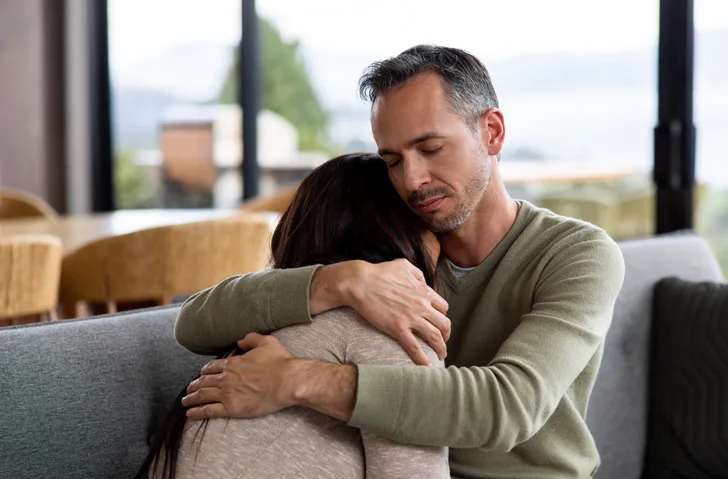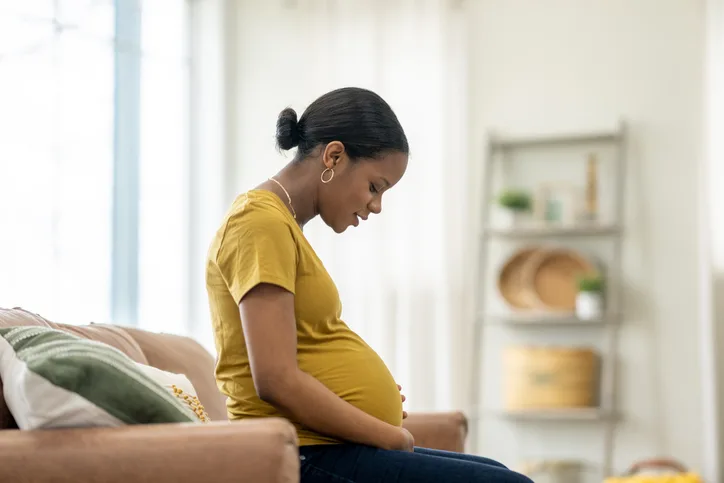
Having a partner who struggles with an eating disorder can be a sensitive and emotionally demanding experience. While love and care are foundational to any relationship, the presence of an eating disorder can introduce a variety of unique challenges that require additional sensitivity, understanding and resilience.
Is it impossible to navigate a relationship that faces the challenges of an eating disorder? Not at all — if anything, it gives the partners a chance to grow in communication, gentleness and teamwork.
The challenges of an eating disorder’s presence
Eating disorders like anorexia nervosa, bulimia nervosa, and binge-eating disorder are severe mental health conditions characterized by disordered eating habits and a hyperfixation of body weight and shape, overall physical appearance, and food intake habits.
These disorders often have profound physical and psychological effects, including health problems and mental health struggles, which impact both the struggling individual and those they are close to, including their partner.
One of the primary challenges of having a partner with an eating disorder is navigating the emotional complications. Eating disorders are often linked with low self-esteem, anxiety and depression. As a partner, it can be heart-wrenching to watch someone you love battle feelings of inadequacy and self-hatred. This emotional turmoil can strain the relationship, as it may lead to mood swings, self-isolation and conflicts between the pair.
Another significant challenge is managing the practical aspects of daily life that are influenced by the eating disorder. Social activities that revolve around food can become sources of stress and anxiety. The partner without the eating disorder may feel torn between wanting to partake in these activities and wanting to avoid increasing their partner’s stress.
Is dating someone with an eating disorder hard?
The difficulty of dating someone with an eating disorder depends on factors like the severity of the disorder, the level of communication between partners and the support systems and coping mechanisms in place. It is essential to acknowledge that while challenging, it is not impossible to have a healthy and fulfilling relationship with someone who struggles with disordered eating.
Trust and communication are essential for mitigating any difficulties. Open and honest conversations about the disorder, its impact on the relationship, and the needs and boundaries of both partners can foster a supportive environment. It is also essential for the partner without the eating disorder to boost their knowledge of the condition to increase empathy and patience.
How can I help my partner who battles an eating disorder?
Supporting a partner with an eating disorder can be a delicate and demanding task. Empathy, patience, and proactive engagement ensure your partner feels understood and supported. Still, you must also ensure your needs are met to provide the support your partner needs appropriately.
1. Take the time to learn
Understanding eating disorders is the first step in offering meaningful support. Take the time to learn about the specific disorder your partner is experiencing. Familiarize yourself with typical symptoms, triggers and treatment options. Resources from reputable organizations like the National Eating Disorders Association (NEDA) or additional information on Seeds of Hope’s blog can provide valuable information.
2. Don’t be afraid of the complex (but necessary) conversations
Open and honest communication is crucial, so it is in your best interest to create a safe space where your partner feels comfortable sharing without fear of judgment. Ask open-ended questions and listen actively. Avoid making assumptions or offering unsolicited advice, as this can sometimes lead to misunderstandings or feelings of resentment.
3. Offer emotional support
Emotional support is a cornerstone of helping someone with an eating disorder. Express your love and concern without focusing solely on their eating habits or physical appearance. Remind them of their worth and the positive qualities you admire, and be patient and understanding, especially during moments of struggle or relapse.
4. Encourage professional help
While your support is invaluable, professional treatment is often essential for recovery, so encourage your partner to seek help from a therapist, nutritionist or doctor who specializes in eating disorders. Help find resources or attend appointments if they feel comfortable with your involvement.
5. Be aware of negative comments and triggers
Be mindful of potential triggers that could exacerbate your partner’s condition and avoid making comments about weight, body shape or dieting trends. Instead, focus on non-food-related activities you enjoy by planning dates or pursuing hobbies that don’t center around meals.
6. Understand that healing takes time
Recovery from an eating disorder is often a long and non-linear process with ups, downs and slow progress. Maintain a consistent presence in your partner’s life, showing that you are there for them through every stage of their journey. Celebrate small victories and offer encouragement during setbacks.
7. Take care of yourself
If you constantly give of yourself in the relationship, ensure you are also trying to meet your needs. Whether you speak to a counselor to get an outside perspective, set healthy boundaries around your time, or have an open conversation with your partner about your thoughts, feelings, and concerns, it is crucial to the success of your relationship that you look after yourself in these ways, too.
Eating disorder help and recovery
To get in touch with a counselor who specializes in eating disorders for yourself or your partner, reach out to Seeds of Hope by calling 610-644-6464 or by filling out an online contact form.


